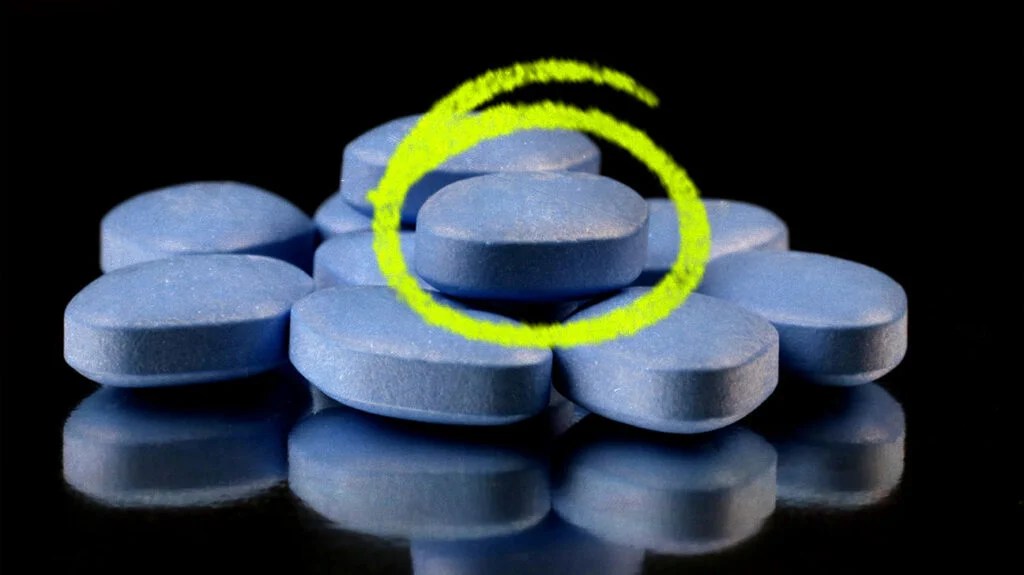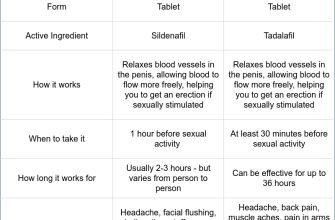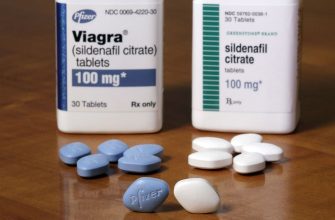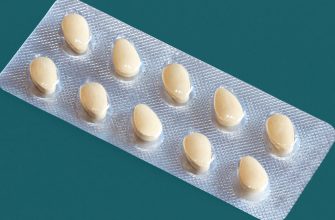No, Viagra isn’t a COPD treatment. However, research suggests sildenafil, the active ingredient in Viagra, may offer some benefits for specific COPD-related issues. Specifically, studies indicate potential improvements in exercise capacity and quality of life for certain patients.
These findings stem from sildenafil’s ability to dilate blood vessels in the lungs, potentially easing breathing difficulties experienced by COPD sufferers. Importantly, this is not a replacement for standard COPD treatments; it’s a subject of ongoing investigation.
Before considering sildenafil for COPD symptoms, consult your doctor. They can assess your individual needs, discuss potential risks and benefits, and determine if it’s a suitable option for your specific condition. Remember, self-medicating can be dangerous, and appropriate medical supervision is crucial.
Key takeaway: Sildenafil shows promise in improving specific aspects of COPD, but only under strict medical guidance. Always prioritize a conversation with your physician before exploring this avenue.
- Viagra for COPD: Exploring Potential Benefits and Risks
- Mechanism of Potential Benefit
- Risks and Considerations
- Clinical Trial Data Summary
- Important Note
- Medication Interactions
- Further Research
- Understanding the Mechanisms of Viagra (Sildenafil)
- Increased cGMP and its Effects
- Beyond Erectile Dysfunction
- Important Considerations
- Viagra’s Effects on Pulmonary Arterial Hypertension (PAH) in COPD
- Mechanism of Action and Clinical Relevance
- Limitations and Considerations
- Clinical Trials and Research on Viagra for COPD
- Sildenafil’s Mechanism and COPD
- Key Studies and Findings
- Current Status and Future Directions
- Important Considerations
- Ongoing Research Areas
- Potential Benefits of Viagra in Treating COPD Symptoms
- Side Effects and Risks Associated with Viagra Use in COPD Patients
- Cardiovascular Effects
- Respiratory Effects
- Other Potential Side Effects
- Important Note: Consult Your Doctor
- Drug Interactions: Viagra and Other COPD Medications
- Viagra’s Role in Improving Exercise Capacity in COPD
- Mechanisms of Action
- Clinical Considerations
Viagra for COPD: Exploring Potential Benefits and Risks
Current research suggests Viagra (sildenafil) may offer some benefits for COPD patients, primarily by improving pulmonary artery pressure and potentially easing breathing difficulties. However, it’s crucial to understand that Viagra is not an approved treatment for COPD, and its use should be carefully considered.
Mechanism of Potential Benefit
Sildenafil’s primary mechanism involves inhibiting phosphodiesterase-5 (PDE5), leading to increased levels of cyclic GMP. This, in turn, relaxes blood vessels in the lungs, potentially reducing pulmonary hypertension (high blood pressure in the lungs), a common complication in COPD. Reduced pulmonary hypertension can improve blood flow to the lungs, potentially leading to easier breathing for some individuals.
Risks and Considerations
While potential benefits exist, Viagra carries risks, some exacerbated in individuals with COPD. Common side effects include headaches, flushing, nasal congestion, and visual disturbances. Moreover, Viagra can interact negatively with certain medications commonly prescribed for COPD, such as nitrates. This interaction can cause a dangerous drop in blood pressure.
Clinical Trial Data Summary
Clinical trials exploring sildenafil for COPD have yielded mixed results. Some small studies show promise in improving exercise capacity and pulmonary hemodynamics, but larger, more rigorous trials are needed to establish definitive efficacy and safety.
Important Note
Always consult your doctor before considering using Viagra or any other medication for COPD. Your physician will assess your individual health status, medication history, and potential risks to determine if sildenafil is appropriate for you. Self-medicating can be dangerous.
Medication Interactions
| Medication Class | Potential Interaction |
|---|---|
| Nitrates | Severe hypotension (dangerously low blood pressure) |
| Alpha-blockers | Increased risk of hypotension |
| CYP3A4 inhibitors (e.g., ketoconazole) | Increased sildenafil levels, potentially increasing side effects |
Further Research
Research into the potential of phosphodiesterase inhibitors, including sildenafil, for COPD treatment continues. Future trials may provide clearer insights into the benefits and risks for specific patient populations.
Understanding the Mechanisms of Viagra (Sildenafil)
Viagra, or sildenafil, primarily works by inhibiting the phosphodiesterase-5 (PDE5) enzyme. This enzyme breaks down cyclic guanosine monophosphate (cGMP), a crucial molecule for smooth muscle relaxation. By blocking PDE5, sildenafil increases cGMP levels.
Increased cGMP and its Effects
Elevated cGMP leads to relaxation of the smooth muscles in the blood vessels of the penis, facilitating increased blood flow. This mechanism is responsible for the erection-promoting effects of Viagra. Importantly, this effect is dependent on sexual stimulation; Viagra doesn’t cause erections without sexual arousal.
Beyond Erectile Dysfunction
While primarily known for treating erectile dysfunction, sildenafil’s PDE5 inhibition impacts other vascular tissues as well. This explains its use in treating pulmonary hypertension, a condition marked by high blood pressure in the arteries leading to the lungs. By relaxing pulmonary blood vessels, it reduces strain on the heart.
Important Considerations
Sildenafil’s interactions with nitrates are a serious concern. Nitrates, used to treat angina, also affect blood vessels, and their combined use with Viagra can drastically lower blood pressure, potentially leading to dangerous consequences. Always inform your physician of all medications you are taking before starting sildenafil.
Viagra’s Effects on Pulmonary Arterial Hypertension (PAH) in COPD
Sildenafil, the active ingredient in Viagra, demonstrates potential benefits in managing pulmonary arterial hypertension (PAH) associated with COPD. It acts by inhibiting phosphodiesterase-5 (PDE5), leading to increased levels of cyclic guanosine monophosphate (cGMP). This, in turn, relaxes pulmonary blood vessels, reducing pulmonary vascular resistance and improving blood flow to the lungs.
Mechanism of Action and Clinical Relevance
Several studies suggest sildenafil improves exercise capacity and reduces symptoms in COPD patients with PAH. However, the response varies significantly among individuals. Careful monitoring of blood pressure and potential side effects, such as headache and flushing, is necessary. Dosage adjustments are often required to optimize benefit and minimize adverse reactions. Always consult a physician before considering sildenafil for PAH treatment.
Limitations and Considerations
Sildenafil isn’t a cure for PAH or COPD. Its effectiveness in PAH associated with COPD is not universally consistent and may depend on disease severity and individual patient factors. Further research is needed to fully understand the long-term effects and optimal usage. Patients should discuss their specific condition and potential risks with their healthcare provider before initiating sildenafil treatment.
Clinical Trials and Research on Viagra for COPD
While Viagra (sildenafil) isn’t approved for COPD treatment, research explores its potential benefits. Studies focus on its effects on pulmonary hypertension, a common complication of COPD.
Sildenafil’s Mechanism and COPD
Sildenafil inhibits phosphodiesterase-5 (PDE5), increasing nitric oxide levels. This can improve blood flow in the lungs, potentially alleviating pulmonary hypertension symptoms. However, the research is limited and requires further investigation.
Key Studies and Findings
- A 2010 study in the American Journal of Respiratory and Critical Care Medicine showed improved exercise capacity in some COPD patients with pulmonary hypertension after sildenafil treatment. However, the effect varied widely among participants.
- Other smaller trials have yielded mixed results, with some showing benefits in specific COPD subtypes, but not all.
- Large-scale, randomized controlled trials are needed to confirm these preliminary findings and establish clear efficacy and safety profiles.
Current Status and Future Directions
Current evidence doesn’t support sildenafil as a standard COPD treatment. More research is required to determine if it’s beneficial, for whom, and under what conditions. Future trials should focus on patient selection and precise dosage regimens.
Important Considerations
- Sildenafil has potential side effects, including headaches, flushing, and visual disturbances. These should be carefully considered before use.
- Patients should always discuss potential off-label uses of medications with their physicians. Self-treating can be dangerous.
- Research is ongoing, and future studies may provide more clarity on sildenafil’s role in COPD management.
Ongoing Research Areas
- Investigating sildenafil’s effect on specific COPD phenotypes (e.g., those with predominantly emphysema or chronic bronchitis).
- Exploring combinations of sildenafil with other COPD therapies.
- Further exploring the relationship between PDE5 inhibition and pulmonary vascular remodeling in COPD.
Potential Benefits of Viagra in Treating COPD Symptoms
Current research suggests Viagra, specifically sildenafil, may offer some benefits for COPD patients, primarily by improving pulmonary vascular function.
- Improved Exercise Tolerance: Studies indicate sildenafil can increase exercise capacity in individuals with COPD by dilating blood vessels in the lungs, reducing resistance and allowing for improved oxygen uptake during physical activity. This translates to better quality of life and increased ability to perform daily tasks.
- Reduced Pulmonary Hypertension: Sildenafil’s ability to relax blood vessels can help manage pulmonary hypertension, a common and serious complication of COPD. Lowering pulmonary artery pressure eases strain on the heart and improves overall lung function.
- Potential for Improved Blood Flow: While more research is needed, some studies suggest sildenafil may improve blood flow to the lungs, enhancing oxygenation. This effect can contribute to better overall respiratory function.
It’s crucial to note that sildenafil is not a cure for COPD. Its use in managing COPD symptoms is still under investigation, and further research is necessary to determine its long-term effects and optimal dosages. Always consult your physician before considering sildenafil for COPD treatment; they can assess your specific condition and determine if it’s appropriate and safe for you.
- Talk to your doctor: Discuss the potential benefits and risks of sildenafil for your specific case of COPD.
- Consider other treatment options: Sildenafil is not the only treatment for COPD; your physician will help create a tailored management plan.
- Monitor your response: Regular check-ups are vital to monitor the effects of sildenafil and adjust the treatment plan accordingly.
Remember, responsible and informed medical decisions are paramount to improving your health.
Side Effects and Risks Associated with Viagra Use in COPD Patients
Viagra, or sildenafil, can interact negatively with certain medications used to treat COPD, potentially worsening existing conditions. One key risk is a further drop in blood pressure, especially if the patient is already taking nitrates or alpha-blockers. This hypotensive effect can lead to dizziness, fainting, and even heart problems. Always inform your doctor of all medications you’re taking, including over-the-counter drugs and supplements.
Cardiovascular Effects
Patients with pre-existing cardiovascular disease should exercise extra caution. Viagra increases blood flow throughout the body. In individuals with heart conditions, this increased blood flow can strain the heart, potentially leading to angina (chest pain), irregular heartbeat (arrhythmias), or even a heart attack. A thorough cardiovascular evaluation before starting Viagra is highly recommended in this population. Regular monitoring of blood pressure and heart rate is also critical.
Respiratory Effects
While less common, Viagra may worsen respiratory symptoms in some COPD patients. The medication’s effects on blood vessels might indirectly influence lung function. Increased blood pressure could potentially constrict airways, exacerbating shortness of breath. Close observation of respiratory function is advisable during treatment. If breathing difficulties increase after taking Viagra, immediately consult your physician.
Other Potential Side Effects
Beyond cardiovascular and respiratory concerns, Viagra can cause headaches, flushing, nasal congestion, visual disturbances, and indigestion. These side effects, while usually mild and temporary, can be aggravated in COPD patients due to pre-existing health conditions and medications. Discuss any side effects with your doctor to determine if adjustments to dosage or treatment are necessary.
Important Note: Consult Your Doctor
Always consult your physician before using Viagra, particularly if you have COPD or any other underlying health condition. Self-medicating can be extremely dangerous and may have unforeseen consequences. A proper assessment of your health status is necessary to determine if Viagra is safe and appropriate for you.
Drug Interactions: Viagra and Other COPD Medications
Always inform your doctor about all medications you take, including Viagra (sildenafil), before starting any new treatment for COPD. Certain COPD medications interact with Viagra, potentially leading to adverse effects.
Nitrates, often used to treat chest pain associated with COPD, should not be combined with Viagra. This combination can cause a dangerous drop in blood pressure, leading to dizziness, fainting, or even heart attack.
Alpha-blockers, sometimes prescribed for COPD-related complications, can also interact with Viagra, increasing the risk of low blood pressure. Your doctor may adjust dosages or recommend alternative medications.
Some medications used to treat pulmonary hypertension, a potential complication of COPD, can also interact with Viagra. Discuss this carefully with your physician to minimize any potential risk.
While less common, interactions can occur with other COPD medications. Open communication with your physician is key to safe medication management. They can assess your individual situation and advise on safe and effective treatment strategies.
Never stop or alter your medication dosage without consulting your doctor. This includes Viagra and all other COPD medications. Failure to do so can compromise your health.
Viagra’s Role in Improving Exercise Capacity in COPD
Studies suggest sildenafil, the active ingredient in Viagra, may enhance exercise capacity in COPD patients. This improvement stems from sildenafil’s ability to relax pulmonary blood vessels, reducing pulmonary hypertension and improving blood flow to the lungs. Improved blood flow translates directly to increased oxygen availability for working muscles.
Mechanisms of Action
Sildenafil’s impact on exercise capacity isn’t solely limited to pulmonary vasodilation. It also influences skeletal muscle function by enhancing blood flow and potentially improving mitochondrial function. This dual action offers a promising avenue for treating exercise limitation, a significant symptom impacting COPD patients’ quality of life.
Clinical Considerations
While promising, research remains ongoing, and sildenafil isn’t a universally recommended treatment for COPD-related exercise limitation. Individual patient responses vary, and potential side effects must be carefully considered. Consult your physician to determine if sildenafil is an appropriate option for your specific circumstances. Regular monitoring of blood pressure and other relevant health indicators is crucial during treatment.









